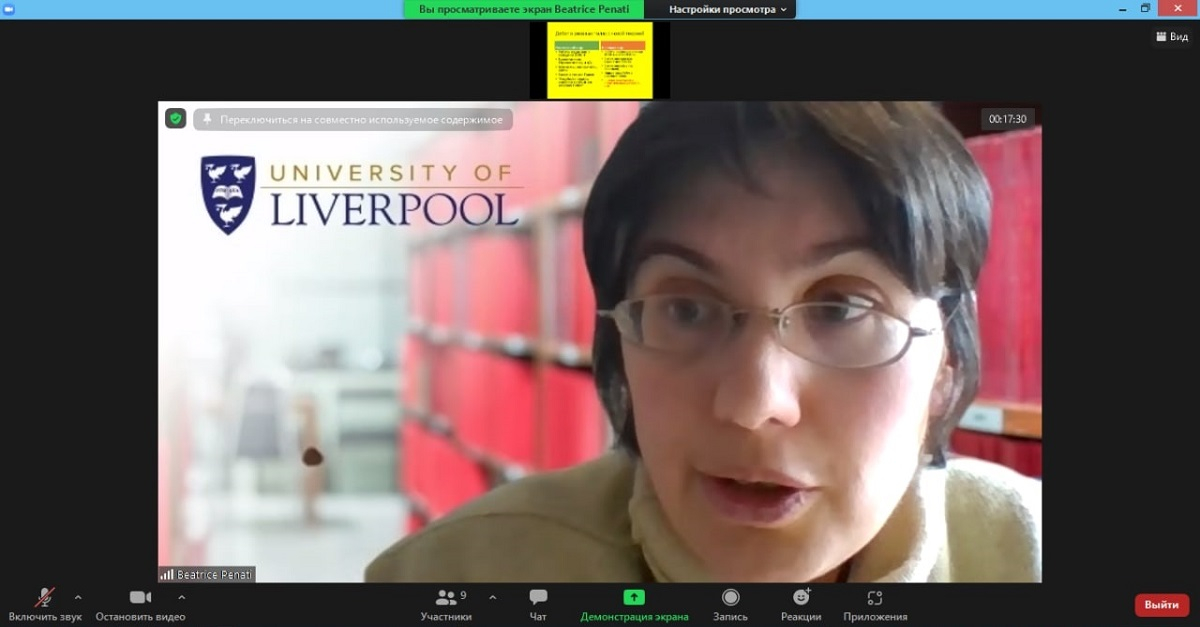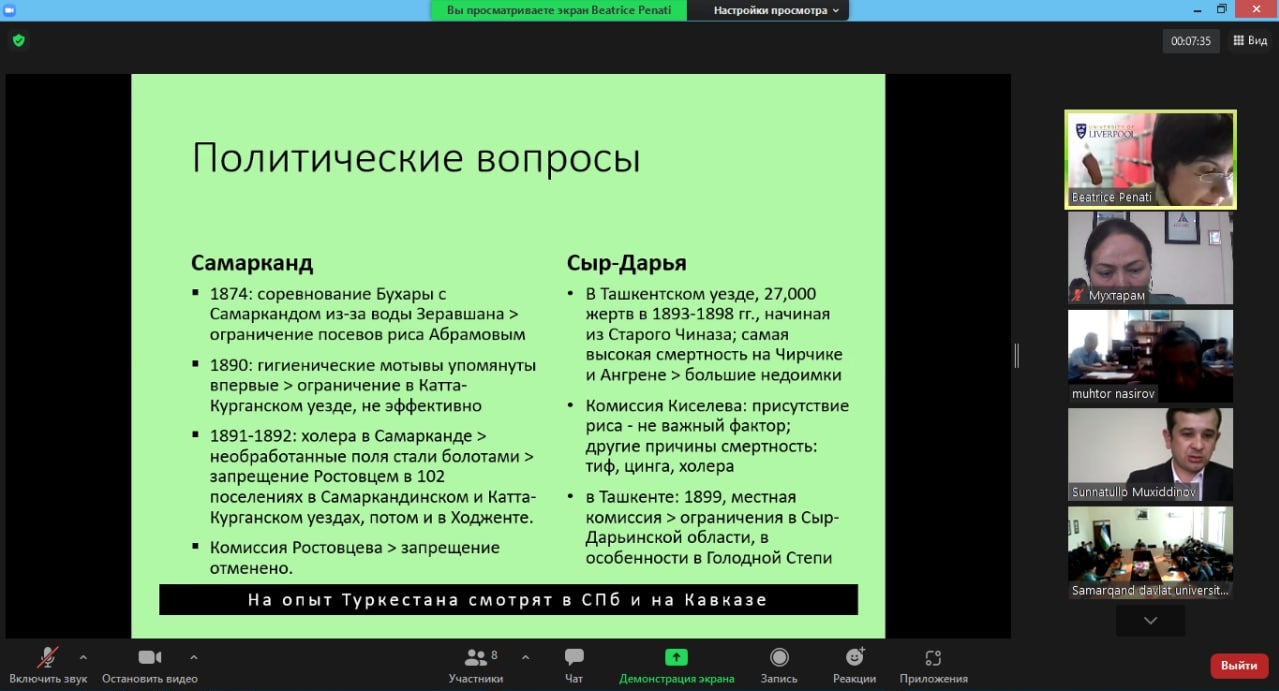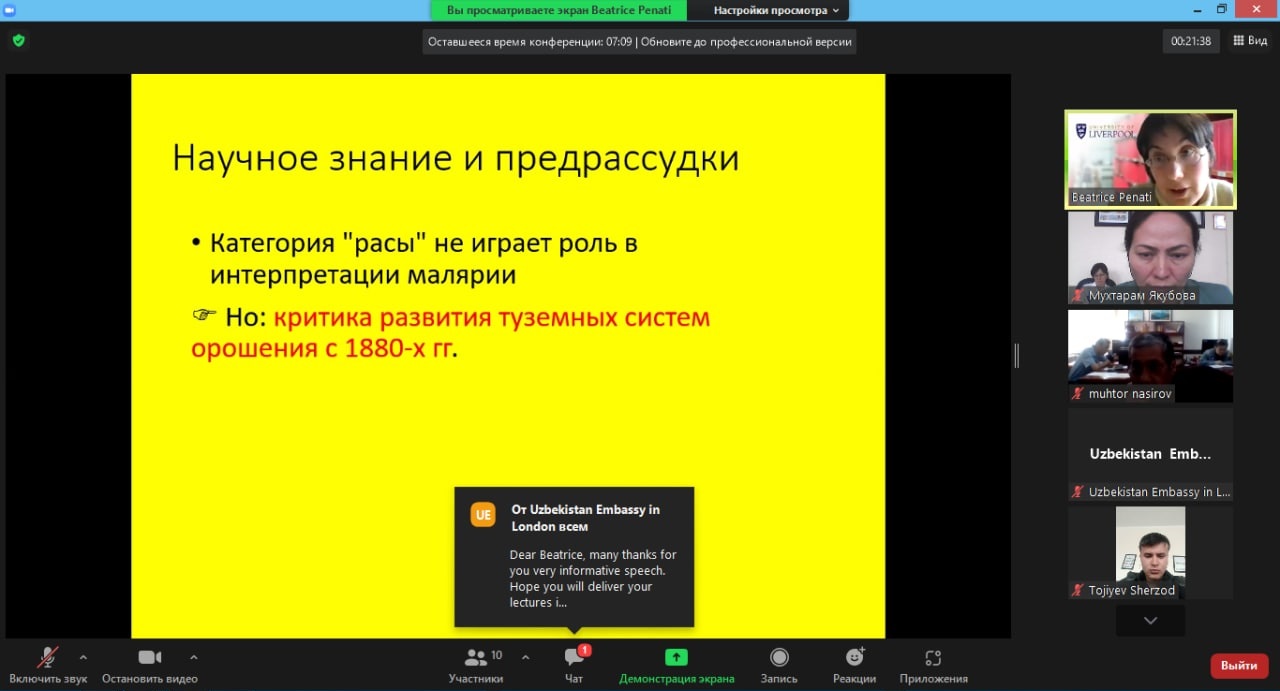British professor delivered a lecture to the students of Samarkand State University…

An online lecture on "History of medicine and agriculture in Uzbekistan in the XIX century" was perfomed to the students of the Faculty of History of Samarkand State University by Dr. Beatrice Penati, Professor of History of Russia and Eurasia, Doctor of Liverpool University.
At the beginning of the lecture, Chief Specialist of the International Relations Department, Associate Professor Mukhtor Nosirov thanked the Embassy of Uzbekistan in the United Kingdom for organizing the lesson. He also told the British professor that he was ready to continue the practice of organizing lectures by Samarkand State University and professors of the University of Liverpool in the future.
In her speech, the British expert detailed information about historical events, the development of agriculture, in particular, the cultivation of rice in modern Uzbekistan in the XIX century. According to British researchers, the growth of rice in Karshi, Shakhrisabz, Samarkand, Jizzakh, Tashkent and other cities in Central Asia between 1868 and 1903, she noted, malaria parasites and mosquitoes multiplied, causing a number of complex diseases among the local population..
According to a British expert, in the spring of 1893 a severe flood in the present-day Syrdarya region, the irrational use of water resources between Samarkand and Bukhara regions, the ban on rice cultivation led to unhealthy nutrition and crop shortages in the region, and this has been a major natural and human factor in the spread of malaria in Uzbekistan.
The map of the spread of the disease in major cities of Uzbekistan and the sanitary and legislative measures taken to reduce the area under rice and prevent further spread of the disease, to increase the number of new species of fish in rivers to combat malaria parasites and mosquitoes has aroused a great interest in the audience. According to a British expert, this event has led to the development of primary scientific medical research on malaria in Uzbekistan.




